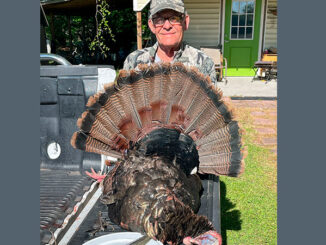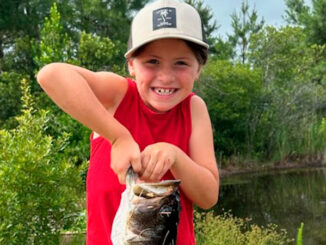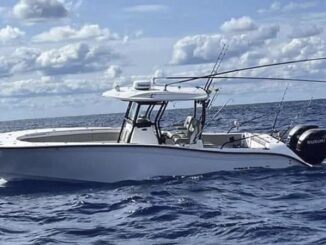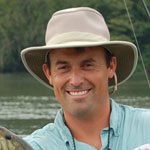
Fishing for black drum over the winter is a staple activity for anglers living along the coast, but many of the big schools of fish are filled with either sub-adults or young adults that will weigh between 2 to 15 pounds. These younger fish prefer brackish waters where food is plentiful and predators are less common.
As black drum grow in size, they become less susceptible to predation and enter into sexual maturity, and a more salty environment is preferred. Anglers looking for bigger black drum need to key on deep-water structure closer to the ocean.
Big black drum don’t get to be 50 pounds overnight, either. They are related to and similar to red drum in their growth patterns, growing very vast in the first three to five years and then slowing to a few inches per year. It takes approximately eight to 10 years from black drum to reach 30 inches in size, and they can live up to 40 to 50 years. Large black drum are also called bulls.
The state-record black drum weighing in at one ounce over 100 pounds and was caught in 1998 by Charles Dycus in the Cape Fear River not too far from the inlet at Southport.
Bull black drum will seek out places near the ocean that feature deep water and good flow. In these deep areas, the water temperatures are relatively stable and warmer than in the shallower places where their younger relatives live.
While food is not abundant this time of year, these bulls will be receptive for anything on their list of preferred foods, especially chunks of blue crab and shrimp. Slightly larger hooks between 3/0 and 5/0 are preferred to handle these larger fish.
Typically, these deeper waters will have swifter current, and a heavier weight will be needed to get baits to the bottom. The black drum will be huddled along the bottom.
Don’t expect to catch dozens of these bulls, either. While there are good numbers of trophy-sized bull drum in these types of places, overall, there will be fewer big fish to catch.
Look for places where the water is at least 25 feet deep, but water deeper than 35 feet is preferred. Heavy structure in the form of rocks, pilings or other concrete and steel structure are good places to find wintering trophy-sized black drum.





Be the first to comment